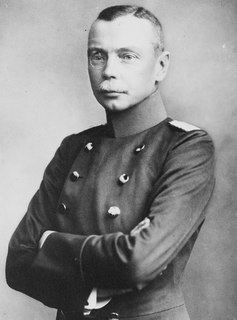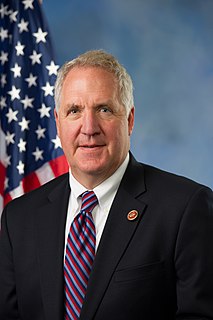A Quote by Jacques Barzun
The world has long observed that small acts of immorality, if repeated, will destroy character. It is equally manifest, though never said, that uttering nonsense and half-truth without cease ends by destroying Intellect
Related Quotes
The essential thing is action. Action has three stages: the decision born of thought, the order or preparation for execution, and the execution itself. All three stages are governed by the will. The will is rooted in character, and for the man of action character is of more critical importance than intellect. Intellect without will is worthless, will without intellect is dangerous.
For as to the dispersing of Books, that Circumstance does perhaps as much harm as good: Since Nonsense flies with greater Celerity, and makes greater Impression than Reason; though indeed no particular species of Nonsense is so durable. But the several Forms of Nonsense never cease succeeding one another; and Men are always under the Dominion of some one or other, though nothing was ever equal in Absurdity and Wickedness to our present Patriotism.
A weapon is a tool," she repeated, a little breathlessly. "A tool for killing and destroying. And there will be times when, as an Envoy, you must kill and destroy. Then you will choose and equip yourself with the tools that you need. But remember the weakness of weapons. They are an extension--you are the killer and destroyer. You are whole, with or without them.
Always mystify, mislead, and surprise the enemy, if possible; and when you strike and overcome him, never let up in the pursuit so long as your men have strength to follow; for an army routed, if hotly pursued, becomes panic-stricken, and can then be destroyed by half their number. The other rule is, never fight against heavy odds, if by any possible maneuvering you can hurl your own force on only a part, and that the weakest part, of your enemy and crush it. Such tactics will win every time, and a small army may thus destroy a large one in detail, and repeated victory will make it invincible.
All good intellects have repeated, since Bacon's time, that there can be no real knowledge but that which is based on observed facts. This is incontestable, in our present advanced stage; but, if we look back to the primitive stage of human knowledge, we shall see that it must have been otherwise then. If it is true that every theory must be based upon observed facts; it is equally true that facts can not be observed without the guidance of some theory. Without such guidance, our facts would be desultory and fruitless; we could not retain them: for the most part we could not even perceive them.
The safe and general antidote against sorrow is employment. It is commonly observed, that among soldiers and seamen, though there is much kindness, there is little grief; they see their friend fall without any of that lamentation which is indulged in security and idleness, because they have no leisure to spare from the care of themselves; and whoever shall keep his thoughts equally busy will find himself equally unaffected with irretrievable losses.
Genesis 8:22 As long as the earth endures, seed time and harvest, cold and heat, summer and winter, day and night, will never cease. I believe [without evidence] that is the infallible word of God and that's the way it is going to be for his creation. The earth will end only when God declares its time to be over. Man will not destroy this earth. This earth will not be destroyed by a flood.
Idealism does not represent a superfluous expression of emotion, but in truth it has been, is, and will be, the premise for what we designate as human culture...Without his idealistic attitude all, even the most dazzling faculties of the intellect, would remain mere intellect just like outward appearance without inner value, and never creative force....The purest idealism is unconsciously equivalent to the deepest knowledge.
The world is always somewhat vicious. I take that as a given, but at various times in various circumstances that fact will be no more than a shadow or an echo behind some poem. Other times it will be more manifest. I try to write myself into articulations of half-felt, half-known feelings, without program. I'm always working toward getting my world and, hopefully, the world outside of me into a version that makes sense of it. Viciousness requires the same precision as love does.
You can give without loving, but you can never love without giving. The great acts of love are done by those who are habitually performing small acts of kindness. We pardon to the extent that we love. Love is knowing that even when you are alone, you will never be lonely again. & great happiness of life is the conviction that we are loved. Loved for ourselves. & even loved in spite of ourselves.




































